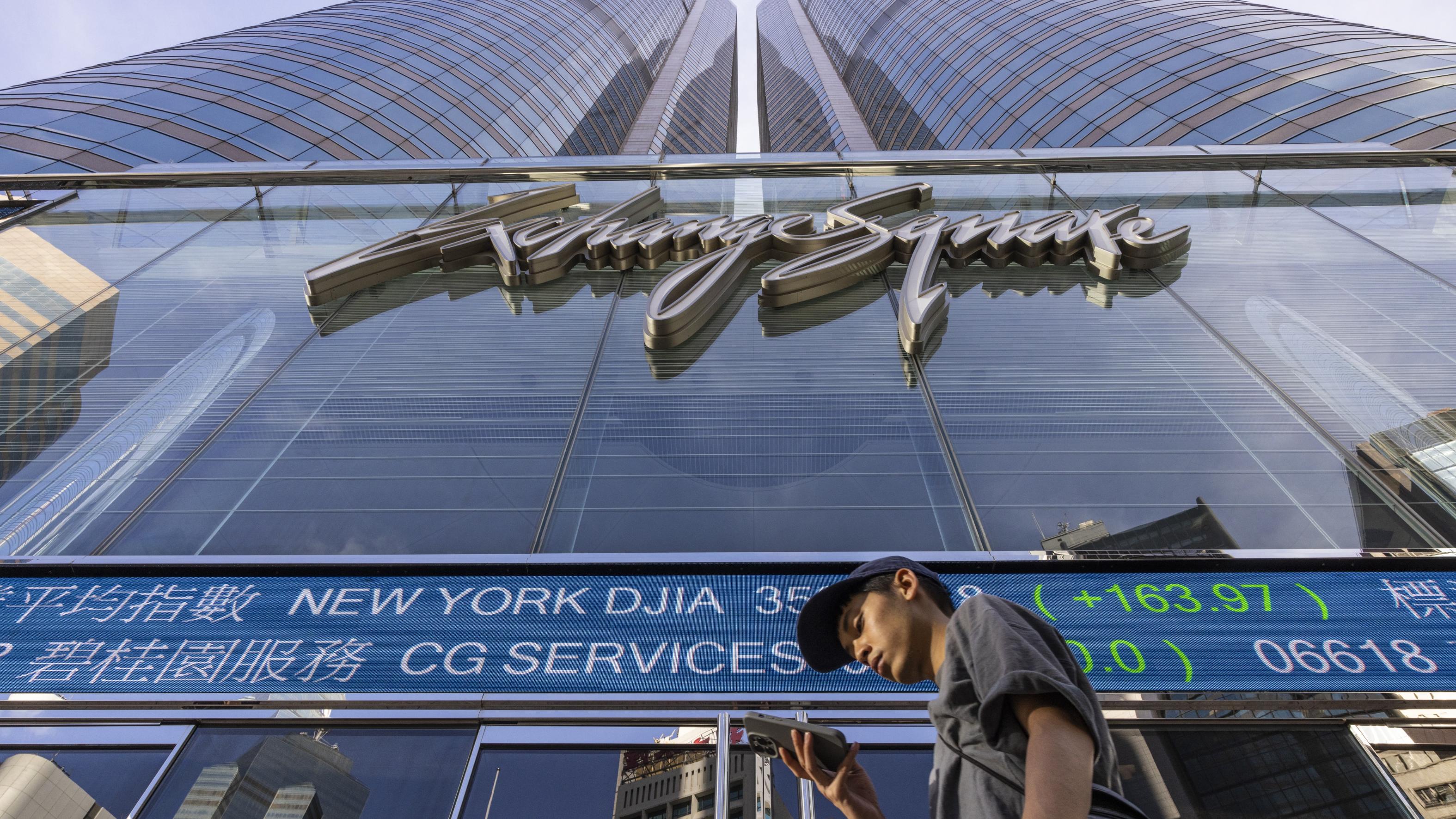 A pedestrian passes by the Hong Kong Stock Exchange electronic screen in Hong Kong on July 21, 2023. (PHOTO / AP)
A pedestrian passes by the Hong Kong Stock Exchange electronic screen in Hong Kong on July 21, 2023. (PHOTO / AP)
Financial analysts expect Hong Kong’s initial public listing market to remain weak for the rest of the year, while predicting a market rebound in 2024 amid the introduction of the Fast Interface for New Issuance (FINI), effective from Wednesday, and forthcoming regulatory reform on the Growth Enterprise Market.
The international financial hub saw 61 companies listed on the Hong Kong Stock Exchange, with HK$41.3 billion ($5.3 billion) raised this year, the lowest since the SARS outbreak in 2003, according to EY’s report “Chinese mainland and Hong Kong IPO markets 2023 review and 2024 outlook” released on Tuesday.
EY forecasts that Hong Kong’s global IPO ranking will fall from fourth last year to sixth this year, trailing behind the Shanghai and Shenzhen stock exchanges, which raised $27.1 billion and $20.2 billion, respectively
The number of deals and funds raised slumped by around 19 percent and 59 percent respectively over the last year, the report said.
READ MORE: Deloitte: HK IPOs expected to raise around HK$400b in 2021
Jacky Lai Wan-fung, EY Hong Kong capital market service spokesman, noted that the absence of large-scale companies listing in Hong Kong has significantly reduced the amount of fundraising this year. Besides, less than 40 percent of the new stocks listed in 2023 were sold at a fixed price.
However, Lai said, “Hong Kong remained as an important global IPO venue and an international financial center despite sluggish IPO activity in 2023.”
EY forecasts that Hong Kong’s global IPO ranking will fall from fourth last year to sixth this year, trailing behind the Shanghai and Shenzhen stock exchanges, which raised $27.1 billion and $20.2 billion, respectively.
Ringo Choi Wai-wing, EY Asia-Pacific IPO leader, said none of the 10 largest global IPOs were hosted in Hong Kong in 2023. The delay in listing plans by large enterprises for various reasons has contributed to the slide in the city’s global ranking, he said.
Choi said Hong Kong’s capital market still faces multiple challenges in 2024, and the recovery of IPO activity relies on the restoration of the capital market and market capitalization.
Overall, global IPO volumes were slashed 12 percent this year, with proceeds down by 35 percent year-on-year to $119.2 billion, EY said.
As the US Federal Reserve is expected to cut interest rates next year and the Chinese mainland’s economy recovers, John Lee Chen-Kwok, vice-chairman and head of Greater China, Global Banking for UBS AG, said he expects Hong Kong’s IPO market to rebound in the second half of next year, with annual fundraising increasing by at least 30 to 40 percent.
Lee acknowledged that the Hong Kong capital market may struggle to return to its 2021 peak this year.
By digitalizing the new stock settlement process, market participants and regulatory authorities will be able to manage new stock settlements and access real-time information on the same cloud platform
Hong Kong financial regulators and the banking sector are gearing up to launch a slew of measures to bolster market confidence and embrace a thaw in the fundraising pool. These include the launch of FINI, trimming the settlement cycle from five days to two, in a bid to lower risk for both issuers and investors even in a volatile market. The GEM overhaul is expected to encourage small and medium-sized enterprises to raise funds and speed up the IPO process.
Louis Lau, a Hong Kong-based partner with the capital markets advisory group at KPMG China, said FINI will mark a milestone in Hong Kong’s capital market. By digitalizing the new stock settlement process, market participants and regulatory authorities will be able to manage new stock settlements and access real-time information on the same cloud platform, thereby enhancing market efficiency.
READ MORE: HK IPO market expected to rebound in fourth quarter
Choi said, FINI “introduces a new public offer pre-funding model to help alleviate the scale of funds that are locked up in oversubscribed IPOs.”
Lai said, “The GEM reform aims to vitalize the market. The introduction of a new streamlined switching mechanism will facilitate companies interested in listing on GEM earlier. On the other hand, the new financial qualification test will attract research and development-driven growth companies,” Lai added.
The stock market’s benchmark Hang Seng closed at 17,734 on Tuesday, down about 30 percent from its peak last year.


